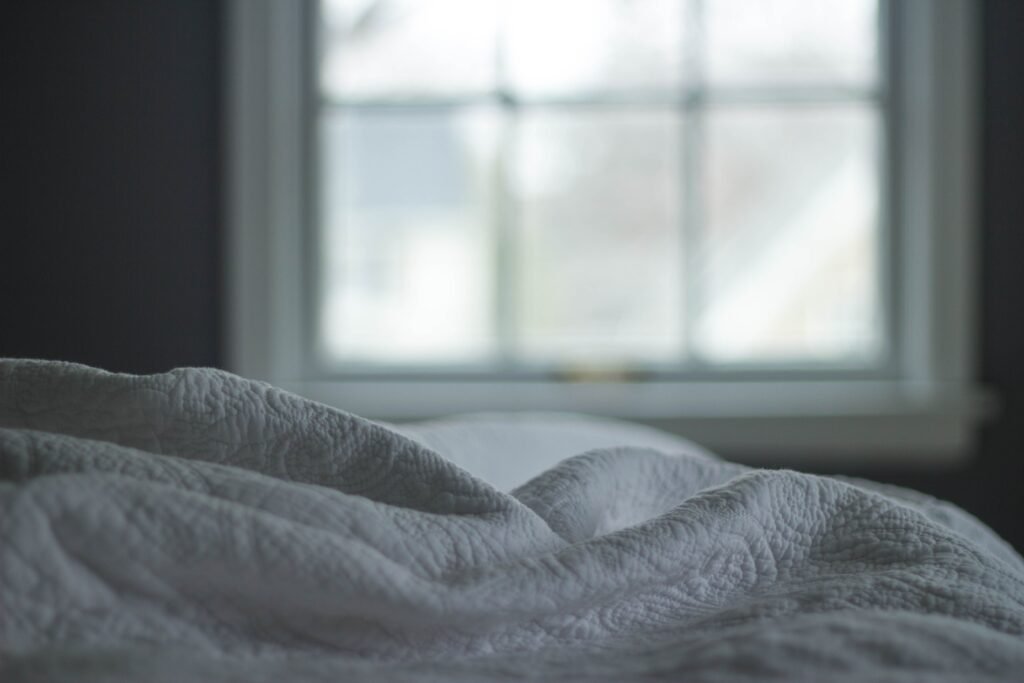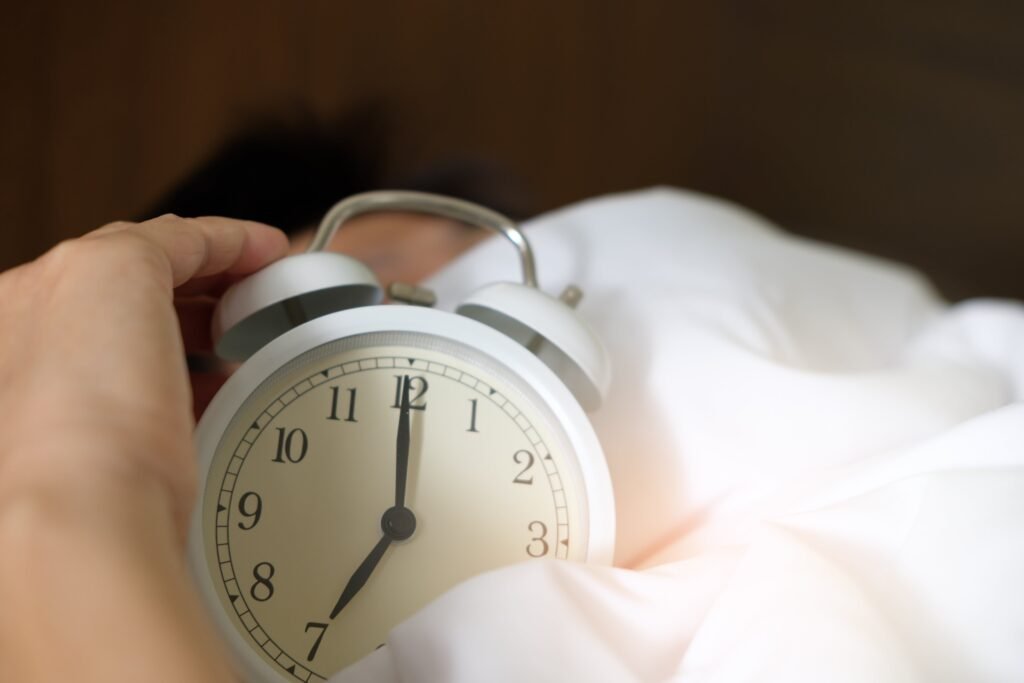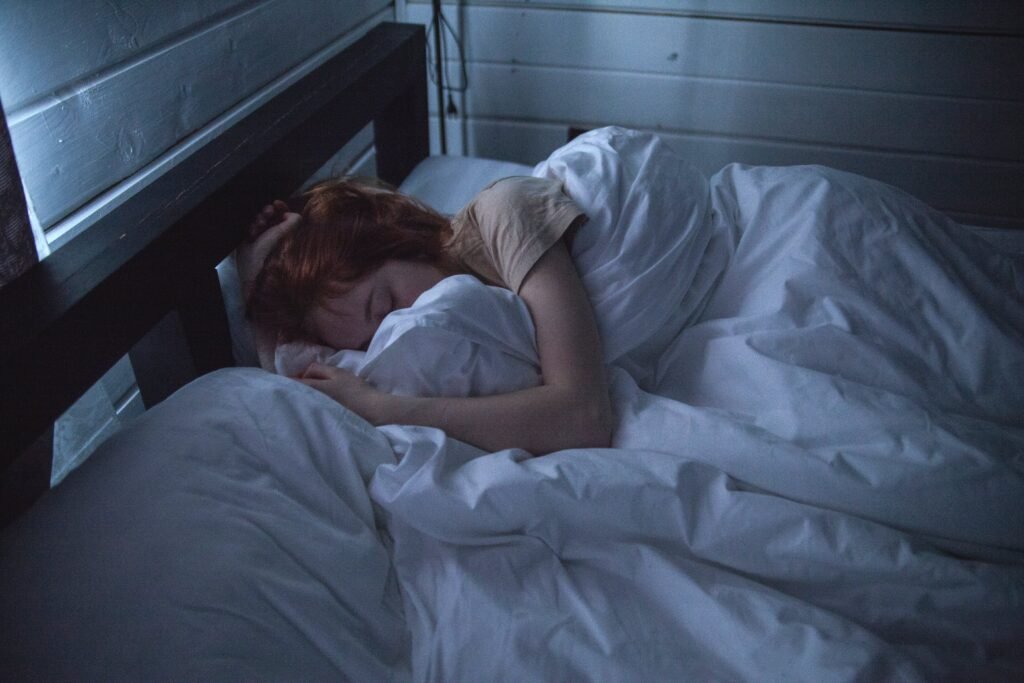If getting a good night’s sleep seems like an elusive dream, you’re not alone. Insomnia affects countless individuals, leaving them weary and desperate for relief. But before you reach for the usual prescription medications, have you ever wondered if there are alternative remedies for insomnia? In this article, we will explore various natural approaches that might just help you bid farewell to those restless nights and say hello to a peaceful slumber. So, if you’re tired of tossing and turning, keep reading to discover potential solutions that could finally bring you the restful sleep you deserve. Yes, there are several alternative remedies for insomnia that can help improve sleep quality and promote a more restful night. These remedies range from herbal treatments to relaxation techniques, and each one offers its own unique benefits. In this comprehensive article, we will explore ten alternative remedies for insomnia and discuss how they can be utilized to achieve better sleep.

1. Herbal Remedies
When it comes to herbal remedies for insomnia, there are several plants and herbs that have been traditionally used for their calming and sleep-inducing properties. Some of the most popular herbal remedies for insomnia include:
1.1 Valerian Root
Valerian root has been used for centuries as a natural remedy for sleep disorders. It is believed to work by increasing levels of a neurotransmitter called GABA, which helps to calm the brain and promote sleep. Valerian root can be taken as a supplement or brewed into a tea.
1.2 Chamomile
Chamomile tea is another popular herbal remedy for insomnia. It contains compounds that have a mild sedative effect, helping to relax the mind and body. Drinking a cup of chamomile tea before bed can help promote a sense of calm and prepare you for sleep.
1.3 Passionflower
Passionflower is a plant that is often used in herbal supplements to treat sleep disorders. It is believed to work by increasing levels of a chemical called gamma-aminobutyric acid (GABA), which helps to reduce anxiety and promote relaxation. Passionflower can be taken as a supplement or brewed into a tea.
1.4 Lavender
Lavender is well-known for its calming and soothing properties, making it an excellent natural remedy for insomnia. The scent of lavender has been shown to reduce anxiety and promote relaxation, making it the perfect addition to a bedtime routine. Lavender essential oil can be used in a diffuser, added to a warm bath, or applied topically to the skin.
1.5 Lemon Balm
Lemon balm is a herb that belongs to the mint family. It has been used for centuries as a natural remedy for sleep disorders and anxiety. Lemon balm can be taken as a supplement, brewed into a tea, or used in aromatherapy. It is believed to work by increasing levels of GABA, promoting relaxation and sleep.
2. Acupuncture
Acupuncture is an ancient Chinese practice that involves inserting thin needles into specific points on the body. It is believed to stimulate the flow of energy, or qi, and promote balance within the body. Acupuncture has been used to treat a wide range of health conditions, including insomnia.
2.1 How Acupuncture Works
According to traditional Chinese medicine, insomnia is believed to arise from an imbalance of energy within the body. Acupuncture aims to correct this imbalance by targeting specific points along the body’s energy pathways, known as meridians. By stimulating these points, acupuncture is thought to promote the flow of qi and restore balance, thereby alleviating insomnia symptoms.
2.2 Benefits of Acupuncture for Insomnia
Many individuals with insomnia report improvements in sleep quality and duration after undergoing acupuncture treatments. Acupuncture is believed to help regulate the body’s internal clock, reduce anxiety, and promote relaxation. It may also help to address underlying imbalances that contribute to sleep disturbances.
2.3 Potential Risks and Side Effects
While acupuncture is generally considered safe when performed by a qualified practitioner, there are some risks and side effects to be aware of. These include minor bruising or bleeding at the needle insertion sites, temporary dizziness or fatigue, and a small risk of infection if proper sterilization procedures are not followed. It is important to choose a licensed and reputable acupuncturist to minimize these risks.
3. Meditation and Relaxation Techniques
Meditation and relaxation techniques can be highly effective in promoting a calm and relaxed state, making them valuable tools for improving sleep. By incorporating these practices into your daily routine, you can help reduce anxiety, quiet the mind, and prepare your body for a restful night of sleep.
3.1 Progressive Muscle Relaxation
Progressive muscle relaxation is a technique that involves consciously tensing and relaxing different muscle groups in the body. By systematically working through each muscle group, you can release tension and promote a feeling of relaxation. This technique can be especially helpful for individuals who experience physical tension or discomfort that interferes with sleep.
3.2 Deep Breathing Exercises
Deep breathing exercises are a simple yet powerful relaxation technique that can be done anywhere, at any time. By taking slow, deep breaths and focusing on your breath, you can activate the body’s relaxation response and reduce feelings of stress and anxiety. Deep breathing exercises can be particularly beneficial when practiced before bed to calm the mind and prepare for sleep.
3.3 Mindfulness Meditation
Mindfulness meditation involves focusing your attention on the present moment without judgment. By cultivating a state of mindfulness, you can observe your thoughts and emotions without getting caught up in them, which can help reduce anxiety and promote a sense of calm. Practicing mindfulness meditation before bed can help quiet the mind and prepare for a restful night’s sleep.
3.4 Guided Imagery
Guided imagery involves using mental images to promote relaxation and reduce stress. By visualizing peaceful and relaxing scenes or engaging your senses in a positive way, you can create a mental state that is conducive to sleep. Guided imagery can be done through the use of audio recordings, smartphone apps, or by following along with a guided meditation.
4. Cognitive Behavioral Therapy for Insomnia (CBT-I)
Cognitive Behavioral Therapy for Insomnia, or CBT-I, is a structured therapeutic approach that focuses on changing the thoughts and behaviors that contribute to insomnia. Unlike traditional talk therapy, CBT-I is a practical and action-oriented therapy that teaches specific strategies and techniques to improve sleep.
4.1 What is CBT-I?
CBT-I aims to identify and modify the negative thoughts and beliefs that contribute to insomnia. It also addresses the behaviors and habits that can perpetuate sleep disturbances. This therapy focuses on changing the way you think about sleep, improving sleep hygiene, and implementing relaxation techniques to promote better sleep.
4.2 Components of CBT-I
CBT-I typically consists of several components, including sleep education, sleep restriction therapy, stimulus control therapy, relaxation training, and cognitive therapy. Each component serves a specific purpose in addressing the cognitive and behavioral factors that contribute to insomnia and helps to promote healthy sleep patterns.
4.3 The Effectiveness of CBT-I
Numerous studies have shown that CBT-I is highly effective in treating insomnia and improving sleep quality. It is considered the gold standard treatment for chronic insomnia and is recommended as a first-line therapy before turning to medication. CBT-I has been shown to produce long-lasting improvements in sleep, with many individuals experiencing significant reductions in sleep latency, wakefulness after sleep onset, and awakenings during the night.
4.4 Finding a CBT-I Therapist
If you are interested in trying CBT-I, it is recommended to seek out a qualified therapist who specializes in sleep disorders and has experience with CBT-I. Many therapists offer CBT-I sessions in person, but online programs and self-help resources are also available for individuals who prefer a more flexible or self-directed approach.

5. Exercise
Regular physical activity is not only vital for overall health and well-being but can also have a positive impact on sleep quality. Engaging in regular exercise can help regulate sleep-wake cycles, reduce anxiety and stress, and promote a greater sense of relaxation.
5.1 The Connection Between Exercise and Sleep
Exercise has been shown to increase the production of endorphins, which are natural chemicals in the body that promote feelings of happiness and relaxation. It also raises body temperature, and when your body temperature subsequently cools down after exercise, it can trigger the body’s natural sleep response. By incorporating exercise into your daily routine, you can help regulate your sleep-wake cycles and promote better sleep.
5.2 Recommended Types of Exercise for Insomnia
While any type of physical activity can be beneficial for improving sleep, some exercises may be more effective than others. Aerobic exercises, such as brisk walking, jogging, swimming, or cycling, are particularly effective at promoting better sleep. These activities increase heart rate and breathing, helping to burn off excess energy and promote a sense of relaxation.
5.3 Timing of Exercise for Better Sleep
The timing of exercise can also play a role in its impact on sleep. Engaging in exercise too close to bedtime may actually have a stimulating effect and make it more difficult to fall asleep. It is generally recommended to finish exercising at least a few hours before bed to allow your body time to wind down and relax before sleep.
6. Sleep Hygiene
Sleep hygiene refers to a set of practices and habits that promote healthy sleep. By adopting good sleep hygiene habits, you can create an optimal sleep environment and set yourself up for a restful night’s sleep.
6.1 Establishing a Bedtime Routine
Establishing a bedtime routine can be incredibly helpful in signaling to your body that it’s time to sleep. A consistent routine can help prepare your mind and body for sleep and promote a sense of relaxation. It can include activities such as taking a warm bath, reading a book, or engaging in a relaxation practice.
6.2 Creating a Comfortable Sleep Environment
Creating a comfortable sleep environment is essential for promoting quality sleep. Make sure your bedroom is free from distractions and is kept at a cool, comfortable temperature. Invest in a supportive mattress and pillows that suit your individual sleep preferences. Consider using blackout curtains or a sleep mask to block out any excess light that may disrupt your sleep.
6.3 Avoiding Stimulants and Electronics Before Bed
Stimulants such as caffeine or nicotine can interfere with your ability to fall asleep and stay asleep. Avoid consuming these substances in the hours leading up to bedtime. Additionally, the blue light emitted by electronic devices such as smartphones, tablets, and computers can suppress the production of melatonin, a hormone that regulates sleep. Limit your exposure to electronic screens in the evening to promote better sleep.
6.4 Maintaining a Consistent Sleep Schedule
Maintaining a consistent sleep schedule is key for regulating your body’s internal clock and promoting better sleep. Try to go to bed and wake up at the same time each day, even on weekends. This consistency helps to reinforce your body’s natural sleep-wake cycles and can reduce the likelihood of insomnia.

7. Aromatherapy
Aromatherapy involves using essential oils derived from plants to promote health and well-being. Certain essential oils have calming and sleep-inducing properties, making them a popular remedy for insomnia.
7.1 Lavender Essential Oil
Lavender essential oil is perhaps the most well-known and widely used essential oil for promoting relaxation and sleep. Numerous studies have shown that inhaling lavender essential oil can help reduce anxiety, improve sleep quality, and increase feelings of relaxation. You can use lavender essential oil in a diffuser, add a few drops to your bath, or apply it topically to your skin.
7.2 Bergamot Essential Oil
Bergamot essential oil has a citrusy and floral aroma and is known for its mood-enhancing properties. It can help reduce anxiety and promote relaxation, making it a useful essential oil for promoting sleep. You can diffuse bergamot essential oil in your bedroom or mix a few drops with a carrier oil and massage it into your skin.
7.3 Ylang Ylang Essential Oil
Ylang ylang essential oil has a sweet, floral scent and is often used in aromatherapy to promote relaxation and reduce stress. It has been shown to have sedative effects and can help induce feelings of relaxation in preparation for sleep. You can use ylang ylang essential oil in a diffuser or add a few drops to a warm bath.
7.4 Clary Sage Essential Oil
Clary sage essential oil has a warm and earthy scent and is known for its calming and stress-reducing properties. It can help promote feelings of relaxation and create a soothing atmosphere before bed. Use clary sage essential oil in a diffuser or mix a few drops with a carrier oil for a relaxing massage.
7.5 Vetiver Essential Oil
Vetiver essential oil has a deep, earthy aroma and is often used to promote relaxation and reduce anxiety. It can help calm an overactive mind and promote a sense of tranquility. Vetiver essential oil can be diffused in your bedroom or mixed with a carrier oil and applied to your skin.
8. Hypnotherapy
Hypnotherapy is a therapeutic technique that utilizes hypnosis to induce a state of deep relaxation and focused attention. It can help individuals overcome limiting beliefs, reduce anxiety, and promote better sleep.
8.1 Understanding Hypnotherapy
Hypnotherapy works by guiding individuals into a hypnotic state, which is a state of heightened focus and concentration. While in this state, the hypnotherapist can make suggestions that help change thoughts, behaviors, and emotions related to sleep. Hypnotherapy can be conducted by a certified hypnotherapist or through self-hypnosis techniques.
8.2 Hypnosis for Insomnia
Hypnosis for insomnia aims to address the underlying causes of sleep difficulties, such as anxiety or racing thoughts. By guiding individuals into a state of deep relaxation, hypnotherapy can help reduce stress and promote a sense of calm before sleep. It can also help individuals reframe negative thoughts and beliefs about sleep.
8.3 Benefits and Limitations of Hypnotherapy
Hypnotherapy is often praised for its ability to help individuals relax, reduce anxiety, and overcome limiting beliefs that contribute to insomnia. It can be a safe and effective alternative for individuals who are hesitant to use medication. However, it is important to note that hypnotherapy may not be effective for everyone, and results can vary. It is recommended to consult with a qualified hypnotherapist to determine if hypnotherapy is a suitable option for you.

10. Mindfulness-Based Stress Reduction (MBSR)
Mindfulness-Based Stress Reduction, or MBSR, is a program that combines mindfulness meditation, yoga, and body awareness techniques to promote stress reduction and overall well-being. It has been shown to be effective in reducing insomnia symptoms and promoting better sleep.
10.1 What is MBSR?
MBSR was developed by Jon Kabat-Zinn in the 1970s as a way to help individuals manage stress, pain, and illness through the practice of mindfulness. The program consists of weekly group sessions and daily home practice, typically lasting 8 weeks. The techniques learned in MBSR can be applied to all aspects of life, including sleep.
10.2 MBSR Techniques for Sleep
Within the context of MBSR, specific mindfulness techniques can be helpful for promoting better sleep. These techniques include body scans, mindful breathing, and loving-kindness meditation. By practicing these techniques regularly, individuals can develop a greater sense of awareness and self-regulation, ultimately leading to improved sleep.
10.3 Research on MBSR for Insomnia
Numerous studies have shown the effectiveness of MBSR in reducing insomnia symptoms and improving sleep quality. A study published in JAMA Internal Medicine found that MBSR significantly improved sleep quality and reduced symptoms of insomnia in older adults. Another study published in Sleep Medicine Reviews concluded that MBSR is a promising approach for managing chronic insomnia.
10.4 Integrating MBSR with Other Remedies
MBSR can be used as a stand-alone treatment for insomnia or can be integrated with other remedies, such as CBT-I or relaxation techniques. By combining different approaches, individuals can tailor their treatment to their specific needs and preferences, ultimately enhancing their chances of achieving better sleep.
In conclusion, there are several alternative remedies for insomnia that can help promote better sleep. These remedies range from herbal treatments to relaxation techniques and can be highly effective in reducing symptoms of insomnia and improving sleep quality. By exploring these alternative remedies, you can find a solution that works best for you and support your journey to a more restful night’s sleep.


